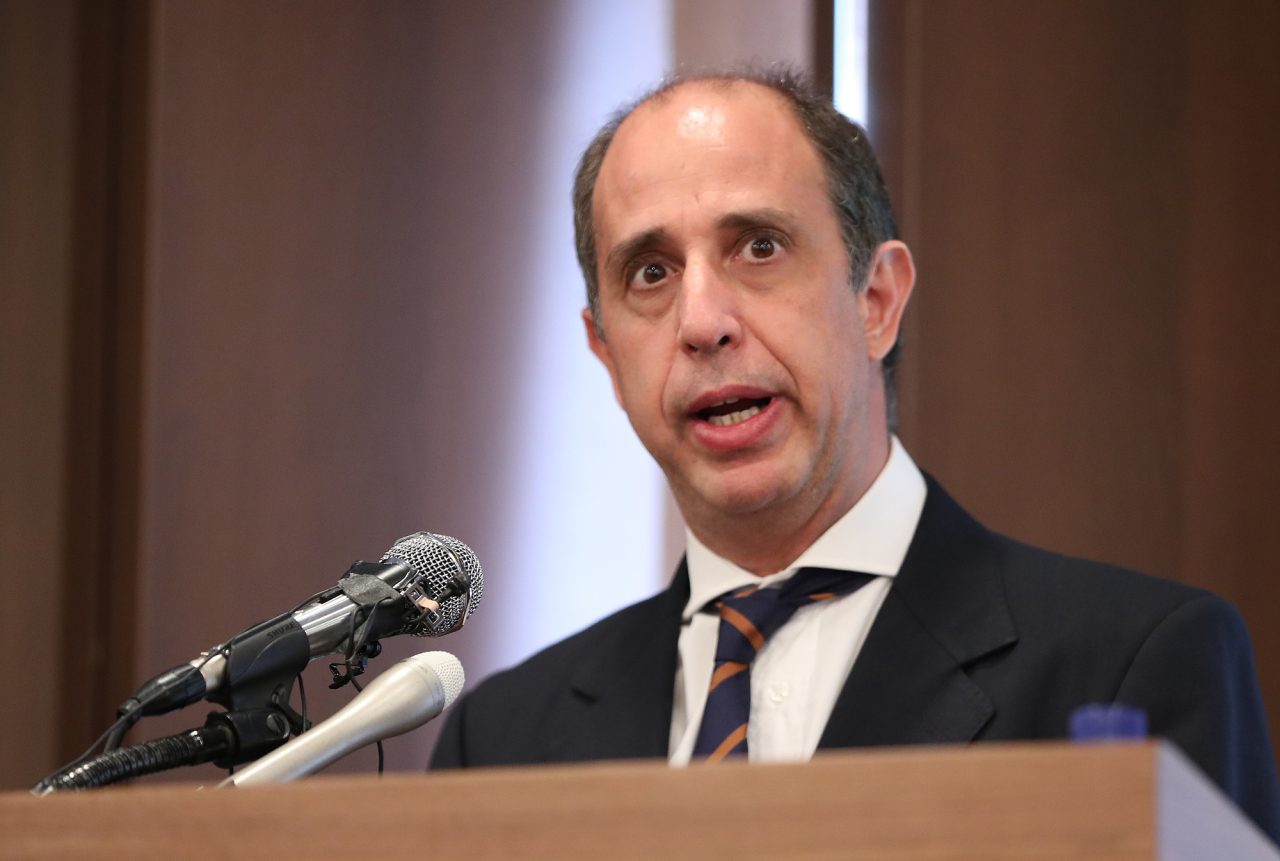Kaesong industrial park should be reopened regardless of sanctions, as tens of thousands of North Korean workers suffer from jobs lost, which also cuts access to adequate health care and food, a UN envoy for human rights said Friday.
Tomas Ojea Quintana, the UN special rapporteur for human rights in North Korea also urged China to not repatriate North Korean escapees, as they face severe punishment when they return home.
 |
Tomas Ojea Quintana, the UN special rapporteur for human rights in North Korea (Yonhap) |
“Kaesong industrial park should be allowed to reopen because, what is more important is bringing better lives to the people of North Korea,” Quintana said at a press conference in Seoul.
About 55,000 North Korean workers, of whom 60 percent are women, lost jobs at the Kaesong industrial park when the South Korean government withdrew from the joint complex in 2016 following a series of missile provocations by North Korea.
When Quintana met officials from the Corporate Association of Kaesong Industrial Complex, he was told the situation was “hell” for the North Koreans, as they lost access to adequate water, sanitation, health care and food that had been secured along with the job.
“The sanctions are having detrimental impact to the lives of ordinary North Korean people. After this meeting, it’s clearer to me that economic cooperation (of the two Koreas) should be allowed by the UN Security Council,” Quintana said. He added that he recommended the association hold consultations with the International Labor Organization.
Quintana also urged China’s cooperation and for it to not deport the North Korean escapees, as they would be subjected to serious violation of their human rights, including torture.
An increasing number of North Korean escapees, including children, are reported to be detained in Shenyang, China, Quintana explained, as the country appears to be cracking down on defectors in collaboration with North Korea.
“Repatriation is contrary to the principle of nonrefoulement, to which China is bound,” Quintana said. “Repatriation puts people’s lives at risks, breaks family ties and further aggravates the dire situation of human rights in North Korea.”
Over Seoul’s decision to send 50,000 tons of rice in food aid to North Korea via a UN agency, Quintana welcomed the move, saying such humanitarian assistance should not be subject to politicization.
Quintana said the North Korean regime has adopted “failing economic and agricultural policies” that have led to inefficient allocation of resources and discriminatory distribution.
“At the same time the government is not developing conditions where people can securely access food through markets without being criminalized,” he explained.
According to UN Country Team, food insecurity in North Korea has reached an alarming level, with 11 million people, or 43.4 percent of the population, undernourished, Quintana said.
Climate conditions, infertile land and the negative impact of sanctions have contributed to the food insecurity.
During the five-day trip, the rapporteur met with government officials, defectors and civic groups to gather information for a report that he is to submit to the UN General Assembly in October. This week’s visit to South Korea marks his sixth trip since he took office as the special rapporteur on North Korea in 2016. His last visit to Seoul was in January.
By Jo He-rim (
herim@heraldcorp.com)







![[Today’s K-pop] Blackpink’s Jennie, Lisa invited to Coachella as solo acts](http://res.heraldm.com/phpwas/restmb_idxmake.php?idx=644&simg=/content/image/2024/11/21/20241121050099_0.jpg)
